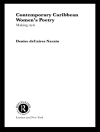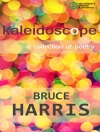Aimé Césaire’s masterpiece, Notebook of a Return to the Native Land, is a work of immense cultural significance and beauty. The long poem was the beginning of Césaire’s quest for négritude, and it became an anthem of Blacks around the world. With its emphasis on unusual juxtapositions of object and metaphor, manipulation of language into puns and neologisms, and rhythm, Césaire considered his style a ‘beneficial madness’ that could ‘break into the forbidden’ and reach the powerful and overlooked aspects of black culture.
Clayton Eshleman and Annette Smith achieve a laudable adaptation of Césaire’s work to English by clarifying double meanings, stretching syntax, and finding equivalent English puns, all while remaining remarkably true to the French text. Their treatment of the poetry is marked with imagination, vigor, and accuracy that will clarify difficulties for those already familiar with French, and make the work accessible to those who are not. André Breton’s introduction, A Great Black Poet, situates the text and provides a moving tribute to Césaire.
Notebook of a Return to the Native Land is recommended for readers in comparative literature, post-colonial literature, African American studies, poetry, modernism, and French.
สารบัญ
Introduction by A. James Arnold
Cahier d’un retour au pays natal
Notebook of a Return to the Native Land
Cesaire’s Cahier in Translation by A. James Arnold
Chronology
เกี่ยวกับผู้แต่ง
Annette Smith, born in Algeria, is an Associate Professor of French at the California Institute of Technology. Eshleman and Smith translated Aimé Césaire: The Collected Poetry (1985).












